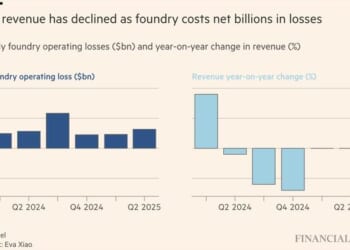
The GOP crashed among women voters last Tuesday, and it took just hours for some prominent conservative and evangelical voices to crash out, laying the blame squarely at the feet of women’s suffrage, and threatening—if impotently—to repeal the 19th Amendment and disenfranchise female voters.
But the GOP needs to win women voters, not blame them—a task that was made infinitely harder by the misogynistic backlash to the wins of Zohran Mamdani, Abigail Spanberger, and Mikie Sherrill.
All three Democrats won commanding victories among women voters: Mamdani with 84 percent of women 18-29 in New York City’s mayoral election, and Spanberger and Sherrill each with 81 percent in the Virginia and New Jersey gubernatorial contests, respectively. According to National Review, which cited exit polls, the Republican Party may be enduring a more severe gender crisis than Democrats, who lost young men in droves to Trump in 2024: The GOP has “lost an even greater share of female voters under 30,” author Becket Adams wrote.
The solution, according to some within the right-wing podcast commentariat, is to begin the process of stripping women of their voting rights.
Slick-faced and polyester-clad, they took to the airwaves and social media platforms the day after the election to speak out against women’s suffrage. Arizona pastor Dave Partridge explained that, “I don’t think we should repeal the 19th Amendment because I don’t love women. … I think we should repeal the 19th Amendment because I love America and American women and want to protect our nation from their suicidal empathy.” He was echoed by Utah pastor Brian Sauve, another well-known right-wing, pro-patriarchy preacher, who called repealing the 19th Amendment “the moderate position at this point.”
These commentators are far-right and, for the most part, self-described “Christian nationalists.” In their perfect world, it would seem that women would abandon vocations in the corporate world and return to their kitchens, where they are at the mercy of patriarchal husbands who rule their families with an iron fist. Their view of women is low, to say the least; right-wing pastor Joel Webbon recently referred to women as ”wicked,” and “vile,” and “hoes”; Wilson told CNN that “women are the kind of people that people come out of” and said they do not belong in leadership positions, and Webbon’s podcast co-host advocated for removing women from universities and other positions of cultural influence.
Webbon, whose Right Response Ministries and Hard Men podcast boast more than 100,000 followers, went on a tirade recently, summing up this view of women:
“Women are atrocious today,” Webbon declared. “They are immodest. They’re hoes. They’re dumb, like literally intellectually unintelligent. They are shallow. They are deceitful. They are wicked. They are vile. They vote for trannies. I’m not making it up. It is objectively [a] 45-point [polling] difference between young men and young women today. That’s where we’re at; a 45-point difference. Women are radical progressives.”
A recent favorite pastime for this group of pastors involves encouraging their male social media audiences to respond to any online criticism by women with the flavor of pie they should be making for their husbands instead of opining on the internet.
These people are ridiculous, to be sure. But they’re also loud and intensely visible to the very online 18-44 demographic—a group that is fleeing the Republican Party in large enough numbers to send shivers down the spine of any GOP strategist with a midterm congressional campaign. The youth vote swung toward President Donald Trump in 2024, reversing gains made under President Joe Biden, but last Tuesday’s results show those gains were short-lived, as were gains made in other demographics.
Women are, according to behavioral studies, more empathetic than men, and many commentators on the right, with greater audiences than just the Christian nationalists, have cited that empathy as a weakening force in American life. These commentators seem to believe women’s empathy is a symptom of weakness and subject to manipulation, so the only clear solution is to simply take away the responsibility of voting. (They, of course, do not examine the ways in which men might be prone to manipulation in the voting booth.)
They have powerful friends. William Wolfe, a former member of the first Trump administration, referred to women’s political decisions last Tuesday as downstream from the “sin of empathy.” Pastor Doug Wilson, well known for his extreme views on gender—even seemingly excusing violence within marital relationships—gave an interview to CNN recently in which he also argued for removing women’s voting rights and “returning” the vote to a “household” model.
“In my ideal society, we would vote as households,” he said. “And I would ordinarily be the one that would cast the vote, but I would cast the vote having discussed it with my household.” Trump’s own defense secretary, Pete Hegseth, retweeted the interview approvingly.
Katie Miller, wife of Trump senior adviser Stephen Miller, launched a podcast earlier this year ostensibly to spread the good word of Trump policy to women who fall in the key 19-44 age demographic—and she, of course, agrees that women should be in the home and not in the public square: “When society told women that our value was derived from our ability to make an income instead of derived from the joy of motherhood we all failed. Make babies. Raise those babies. It’s our highest and best value.” (Miller is, ironically, quite clearly in the public square and making an income, helming her own podcast.
The message found footing within the GOP’s primary avenues of contact with the “youth vote.” On stage at Turning Point USA’s young women’s conference last year, speaker after speaker counseled that the mostly college-aged, female crowd should abandon their career ambitions, settle down, and raise a family. The late Charlie Kirk even quipped, in a Q&A where he was seated opposite his wife, Erika, then the CEO of a clothing company, that he “must have missed it in Matthew—which is ‘Go forth and become C.E.O. of a shoe company.’”
Although these groups frame the issue as being a woman’s choice—albeit one they believe is “natural” and “biblical,” that women are merely brainwashed by progressive society to resist—the message is the same: Women cannot be trusted with responsibility, so we must remove that responsibility.
The 19th Amendment is, of course, not going anywhere. To even begin the process of repealing women’s suffrage, these pastors and commentators would need support from women themselves—half of all voters—in addition to the notable hurdles to passing a constitutional amendment, as well as legal challenges under the equal protection clause.
It’s also a case of post hoc ergo propter hoc—these men assume that without women voters, the Republican Party would simply sail into office. That assumes, however, that men’s voting patterns would not change once they became solely responsible for “household voting.” Would men shift toward progressivism? Would “household leaders” who want their wives and partners to have a say in government turn the vote over to the women in their lives? Women vote more consistently than men, with many married women voting even when their husbands do not.
In short, the “repeal the 19th Amendment” crowd seems short on details for both strategy and success. And indeed, if this is the message that women are hearing from the loudest and, in some cases, most powerful voices in the Republican Party, why would they believe they are valued as voters?
Married women shifted the vote to President Donald Trump in 2024, but if Republicans take that shift for granted, they may be in for an unpleasant surprise. The “marriage gap” that sees women shift their voting from Democratic to Republican once they’re settled, have children, and often own homes, is closing: Although married women still vote Republican in greater numbers than unmarried women, there are noticeably fewer married women, and an increasing share of women are getting married older. (According to Forbes, a quarter of millennial women over 40 have never been married.)
Even married women, including those who fit this ideal mold of stay-at-home mother, can’t escape the negative reverberations of Republican gender politics. The role of the stay-at-home mother and homemaker is an essential one—perhaps the most essential one—in modern society. But far-right rhetoric around women—calling them names, telling them to return to baking pies—betrays a low view even of that essential role. Even right-wing female pundits aren’t safe from their attempts at ejecting women from the public square.
If the GOP intends to hang on to women voters, it would do well to clearly distance itself from the growing din of voices calling for a further wedge between men and women in the political space. Although the effects of Trump’s policies may not be inspiring, Republicans do still have the ability to assuage the economic concerns of middle-class voters, and congressional candidates running for seats in the midterm would be wise to stick to a message about how Republicans can better, and more immediately, improve the lives of their constituents.
And if they feel they can’t make the argument to women that women would be better off under Republican leadership, perhaps that’s a signal that the party’s problems run much deeper than the gender gap.

















